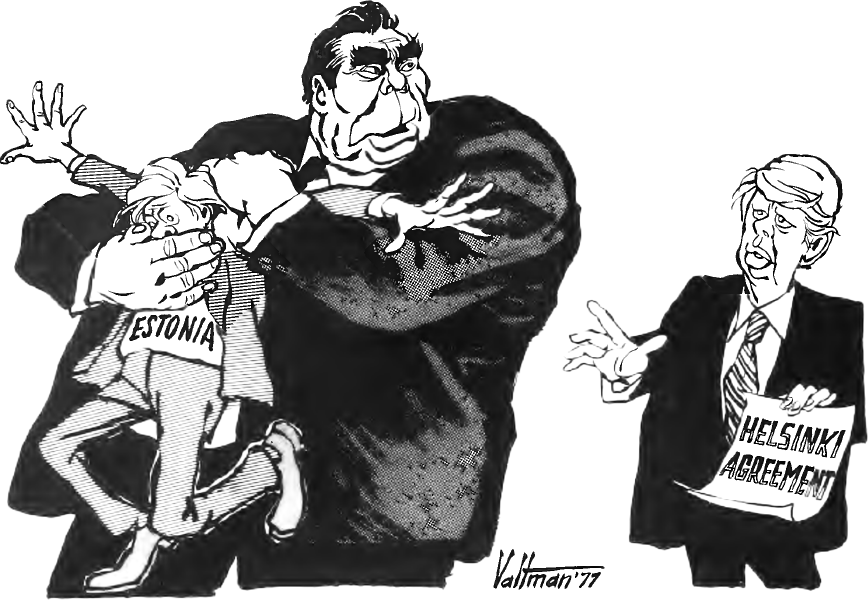<![CDATA[Monday 18th August will mark the 23rd anniversary of communist hardliners placing Soviet Union President Mikhail Gorbachev under house arrest in an attempted coup. The bizarre situation - where a president was the victim of an uprising from within his own political party, reveals a great deal about the complicated decline of the USSR. The coup was carried out by elements of Gorbachev’s administration, the Soviet armed forces and the KGB. The president was detained in his Crimean holiday villa, where his captors attempted to pressure him into submitting his resignation. As Gorbachev refused to publicly resign, the instigators tried to mislead the public by claiming he was ill. Led by former vice president Gennady Yanayev, the coup’s leaders declared a state of emergency and attempted to take control of the government. At this point future CIS President Boris Yeltsin intervened in the upheaval. Along with supporters from parliament, Yeltsin called on the Russian people to strike in protest of the coup. The coup leaders sent soldiers to arrest Yeltsin, but found the path to the parliament building blocked by civilians, both armed and unarmed. Yeltsin then famously climbed a tank and spoke through a megaphone to urge the soldiers not to fight the Russian people, and denounced the coup as a return to ‘terror’, an allusion to the oppression of Stalinist Russia. The soldiers ultimately refused to force their way through the civilians, and after just three days the coup came to an end and Gorbachev was returned to Moscow. The failed coup highlights the dichotomy that dominated Russian society then, and which can still be seen now. Gorbachev stood for the reforming of Russian politics and integration in the international community, whereas those behind the coup were a reactionary force looking to maintain the status quo. The first leader of the Soviet Union to be born after the 1917 Revolution, Gorbachev represented a new era detached from the strict communist ideology of his predecessors in the party. His policy of perestroika (restructuring) aimed to stimulate the USSR’s economy. It allowed businesses more independence from government ministries, while also initialising some market-like economic practices. The argument was that this new system would modify the economy to work more efficiently with Soviet consumers, however, it is hard to deny that it also made the Soviet Union more compatible with Western countries. This is considered a key first step in the thawing of relations between the USSR and USA. Another fundamental change under Gorbachev was the Glasnost (openness) policy. This gave Soviet citizens a level of freedom that had never existed before in the USSR. Political prisoners were released, the press were subject to less censorship and people enjoyed greater freedom of speech. This policy meant those in government, including Gorbachev, were subject to greater criticism and scrutiny. It also meant that atrocities of the past began to be revealed. These two factors put particular pressure on the older, hard line members of the Communist party. Gorbachev’s presidency was the catalyst for a great deal of change, and ultimately the dissolution of the Soviet Union. Regular summits with US President Ronald Regan and the relaxing of control over places such as the Baltic states were portents of great change, and just four months after the attempted coup on December 26th 1991 the Soviet Union was replaced by the Commonwealth of Independent States. The events started on August 18th 1991 were an attempt to prevent these huge changes, by a reactionary force. The key argument was that Gorbachev was a traitor to Russia. The Soviet Union may be long dead, but the man at the centre of its dissolution has not been absolved. Earlier this year a group of Russian MPs called for Gorbachev to be prosecuted for treason for his part in the USSR’s demise. This is not just a call from disgruntled Communist Party members but also from representatives of the current ruling party, Unite Russia. It is clear, the resentments from 1991 still linger. The charges against Gorbachev are for harming the interests and prosperity of the Russian people. The disagreements from over twenty years ago are still being played out today, and continue to fuel a fundamental dichotomy in Russian society and politics.]]>
The Beginning of the End? – The Coup Against Gorbachev
